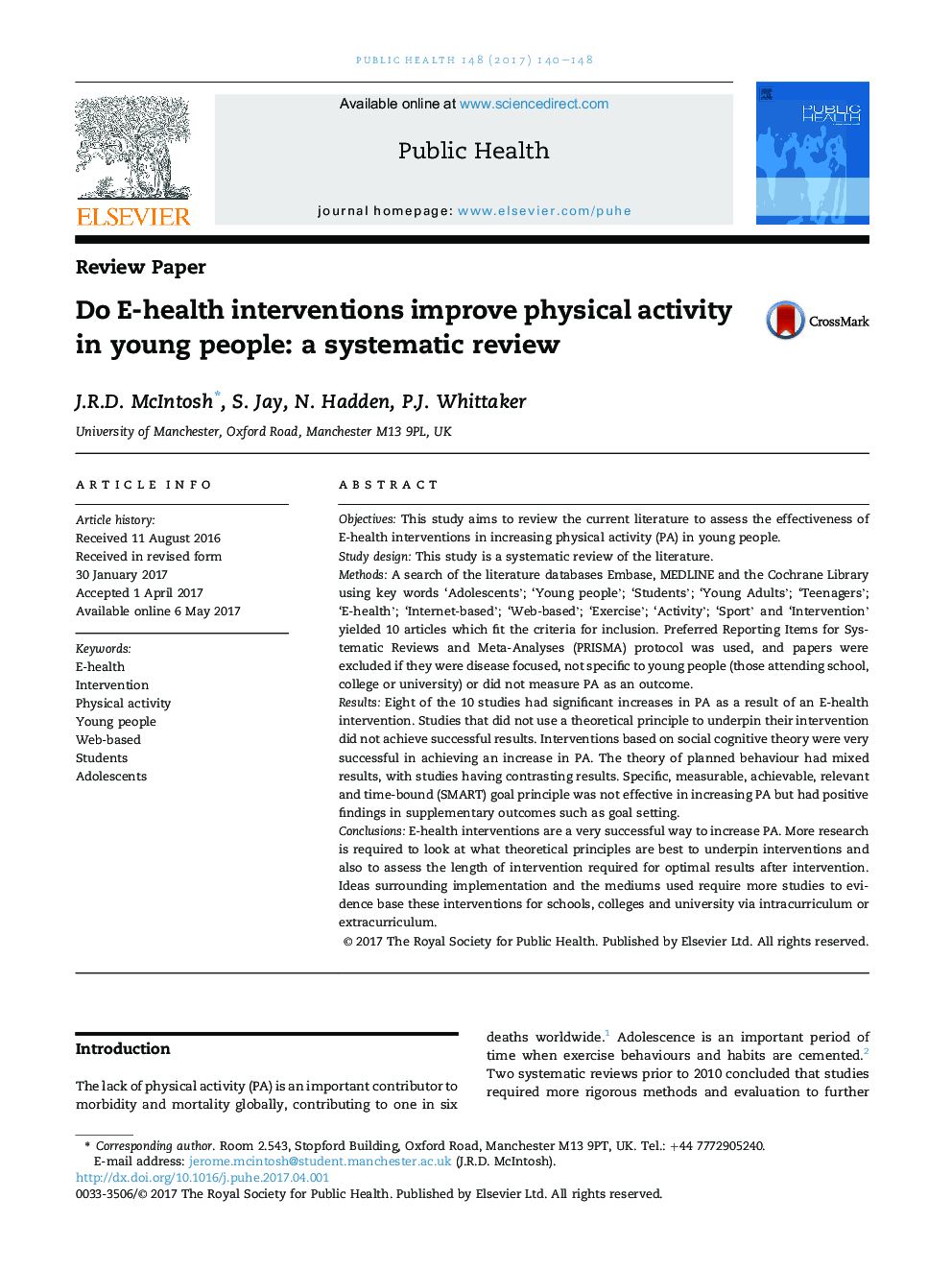| کد مقاله | کد نشریه | سال انتشار | مقاله انگلیسی | نسخه تمام متن |
|---|---|---|---|---|
| 5122891 | 1487195 | 2017 | 9 صفحه PDF | دانلود رایگان |
- E-health interventions are a successful method of improving physical activity in young people.
- More research is required to discern the most effective theories to underpin future interventions.
- An evidence base is required for the most effective methods of implementation using current or innovative mediums.
- Social and demographic barriers to behavioural change need to be addressed to further increase the benefits of E-health interventions.
ObjectivesThis study aims to review the current literature to assess the effectiveness of E-health interventions in increasing physical activity (PA) in young people.Study designThis study is a systematic review of the literature.MethodsA search of the literature databases Embase, MEDLINE and the Cochrane Library using key words 'Adolescents'; 'Young people'; 'Students'; 'Young Adults'; 'Teenagers'; 'E-health'; 'Internet-based'; 'Web-based'; 'Exercise'; 'Activity'; 'Sport' and 'Intervention' yielded 10 articles which fit the criteria for inclusion. Preferred Reporting Items for Systematic Reviews and Meta-Analyses (PRISMA) protocol was used, and papers were excluded if they were disease focused, not specific to young people (those attending school, college or university) or did not measure PA as an outcome.ResultsEight of the 10 studies had significant increases in PA as a result of an E-health intervention. Studies that did not use a theoretical principle to underpin their intervention did not achieve successful results. Interventions based on social cognitive theory were very successful in achieving an increase in PA. The theory of planned behaviour had mixed results, with studies having contrasting results. Specific, measurable, achievable, relevant and time-bound (SMART) goal principle was not effective in increasing PA but had positive findings in supplementary outcomes such as goal setting.ConclusionsE-health interventions are a very successful way to increase PA. More research is required to look at what theoretical principles are best to underpin interventions and also to assess the length of intervention required for optimal results after intervention. Ideas surrounding implementation and the mediums used require more studies to evidence base these interventions for schools, colleges and university via intracurriculum or extracurriculum.
Journal: Public Health - Volume 148, July 2017, Pages 140-148
